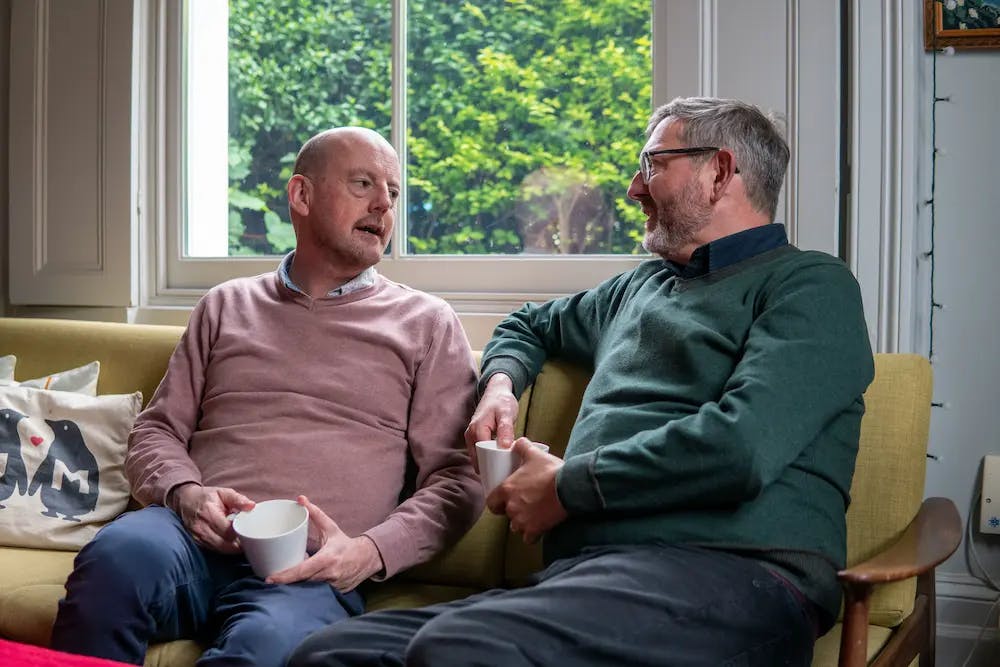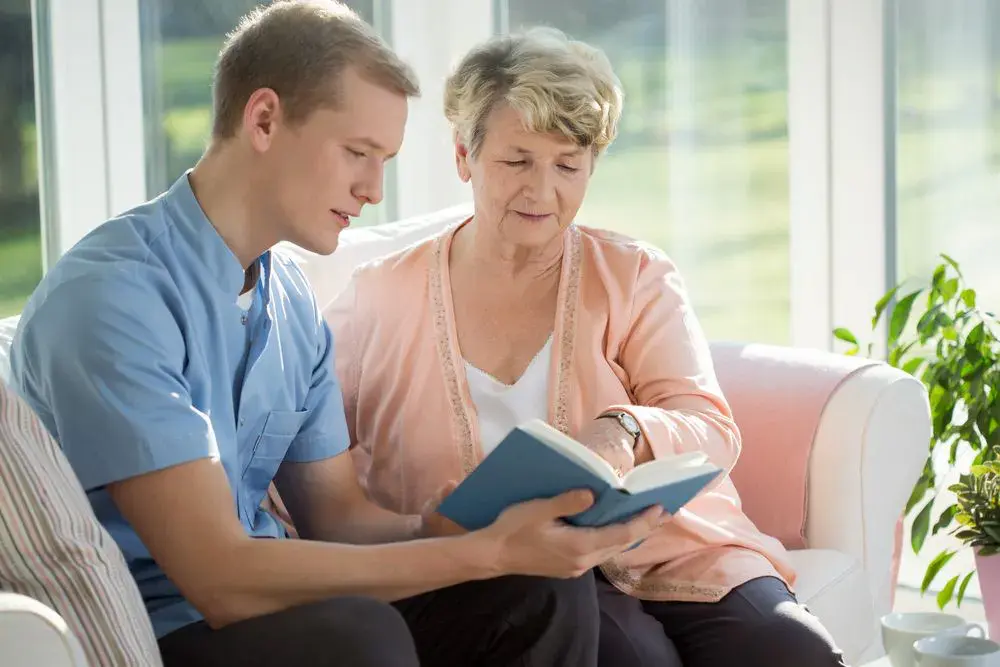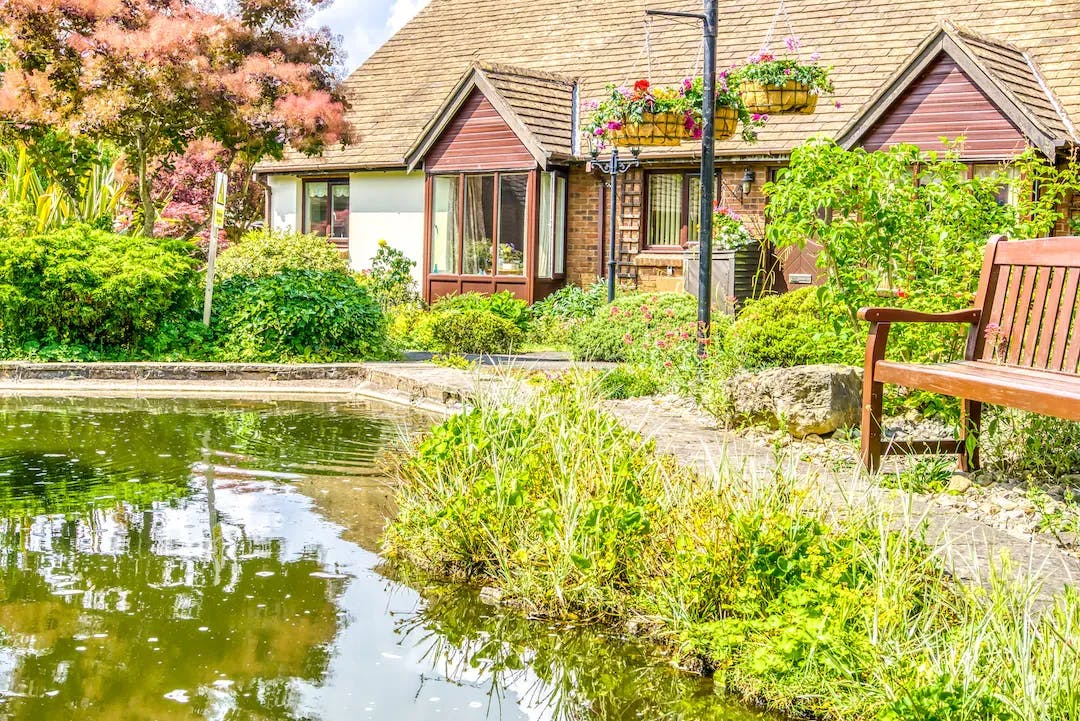How Do You Get Diagnosed With Dementia? | Getting a Dementia Diagnosis

Estimated Reading Time: 8 minutes
If you think you or your loved one may have dementia, it can be a worrying time. Getting a dementia diagnosis can be life-changing. However, the earlier you’re diagnosed, the better your condition can be looked after. That’s why we’ve explained how to get a dementia diagnosis from the NHS or privately.
This article also looks at the next steps, the services available after a diagnosis and what ongoing support you’ll have from medical professionals.
It’s important to remember that you’re never alone, and support is always available, whether from family and friends or specialist services aimed at people living with dementia.
Need to find dementia care fast?
Browse the best dementia care homes for your loved one.
In this article:
- What is dementia?
- How to get a dementia diagnosis
- Private dementia assessments
- What happens if you’re diagnosed with dementia
- How long does it take to get a dementia diagnosis?
- Ongoing dementia assessments
- Dementia care options
What Is Dementia?
Dementia is the umbrella term for groups of conditions that cause the brain to gradually decline over time, changing how your brain functions. This affects things such as memory, problem-solving, critical thinking, communication, personality and behaviour.
There are several types of dementia, with Alzheimer’s disease, vascular dementia, Lewy body dementia and frontotemporal dementia being four of the most common.
The causes and symptoms of dementia vary from type to type. For example, vascular dementia is caused by reduced blood flow to the brain, while Lewy body dementia is caused by a build-up of proteins inside the brain cells.
How to Get a Dementia Diagnosis
You should always speak to your GP first and arrange an appointment with your doctor to discuss any concerns or changes you've noticed.
Attending this appointment can be daunting, so bringing someone with you, such as a family member, can be a great idea. During this tough time, emotional support and having a friendly face alongside you can go a long way.
1. Speak to your GP
You should start by booking an appointment with your or your loved one’s GP. If you’re unsure who your GP is or you aren’t registered, you can find one near you here. Just enter your or your loved one’s postcode.
At the appointment, your GP will speak to you about any symptoms you’re experiencing and how these are affecting your daily life (such as whether you’re able to clean, cook for yourself, do administrative tasks, get from one place to another, go shopping and so on). You’ll also be asked about other aspects of your health and any changes you’ve noticed. It’s worth making a list of these changes, so you’re prepared.
If you go to this appointment with someone else, they’ll also be able to describe any changes they’ve noticed.
During this appointment, they may have you do tests that examine your memory and ability to think clearly.
The GP will also want to figure out if you may have dementia, or whether you have a different condition. To better understand this, they may give you a physical examination and arrange for other tests, such as a blood test or a urine test.
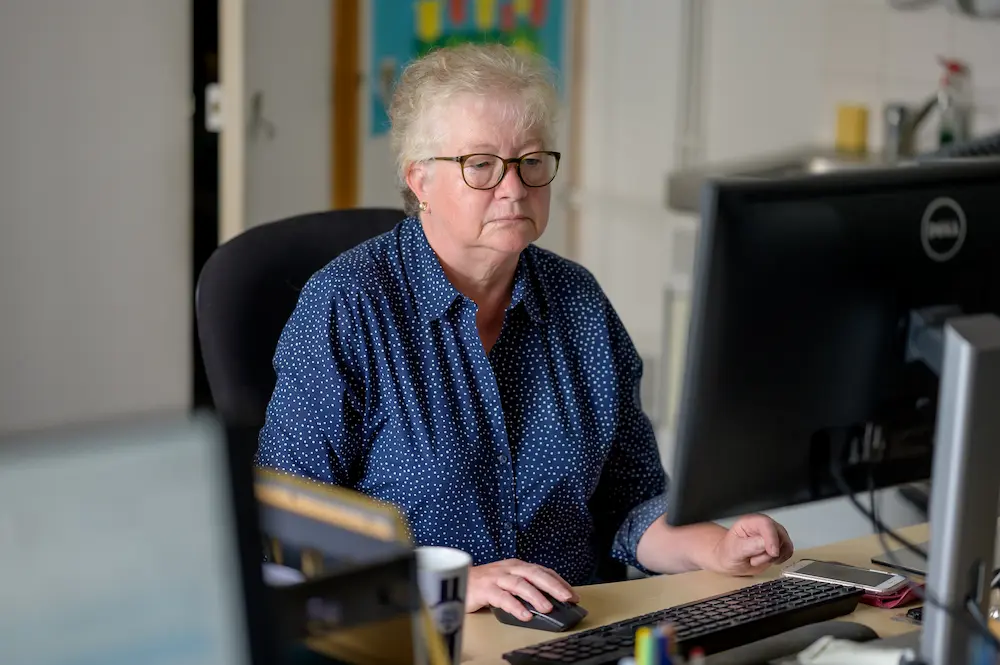
2. Be referred to a dementia specialist
If your GP thinks you or your loved one may have dementia, they’ll likely refer you to a memory clinic or a similar dementia specialist for a more in-depth assessment.
If they don’t provide this referral but you think you should be assessed, you can still ask your GP for it.
During this next assessment, a medical professional specialising in dementia will take a comprehensive medical and family history. They’ll also ask more detailed questions about your daily life and how the symptoms you’re experiencing affect it, including your personal care (how well you’re able to look after your personal hygiene).
Some of these questions may feel a little personal, but they’re very important, as the more evidence and information the dementia specialist has, the more accurate a diagnosis they can make.
They may then organise additional tests for you, such as a CT scan or an MRI scan.
The specialist may also conduct additional memory tests. They might ask you to memorise an address and later recite it, count backwards from a particular number, copy a diagram or something else.
In most cases, a decision can be made about whether you have dementia once the results of these tests have been gathered and analysed.
Private Dementia Assessments
You can also get a private dementia assessment. There are lots of private dementia experts throughout the UK offering this service.
The advantage of being privately assessed includes assessments that are often more in-depth and quicker assessment times (meaning you won’t have to wait as long for an appointment).
Private dementia assessments will often include tests such as:
- Lifestyle assessments
- MRI brain scans and other scans
- Blood tests
However, a private dementia assessment can also be expensive. For example, Re:Cognition Health charges £1,699 for this service.
What Happens If You’re Diagnosed with Dementia
If you’re diagnosed with dementia, the doctor or a different dementia specialist will speak to you and your loved ones about this diagnosis and precisely what it means. This can be an overwhelming time for all involved, so they’ll try to give you as clear an understanding as possible about the next steps.
They’ll tell you:
- What type of dementia it is
- The symptoms you may experience in the future
- How your dementia can be treated and supported
- Medical professionals who can ensure you receive the necessary care and support (they might make contact with these professionals on your behalf)
- Support services nearby
Support available after a dementia diagnosis
Taking in all the information surrounding your dementia diagnosis can be scary, and you may feel as though you aren’t in control of the situation. That’s why it’s important to know what support is out there, both for the person living with dementia and their family members and friends.
People react differently to a dementia diagnosis, and feelings of shock or worry are completely natural.
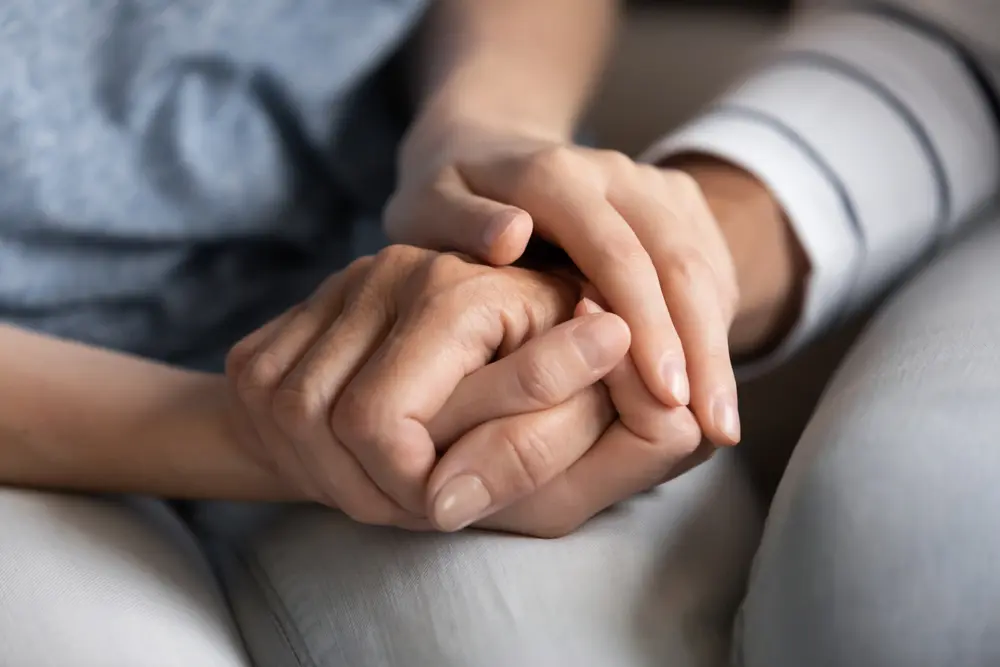
Remember, being diagnosed early is the best outcome, as it gives you the most time to make changes and receive support to help manage your condition as best as possible.
Many people can continue living independently after a diagnosis for a significant length of time, only having to make minor lifestyle changes.
How Long Does It Take to Get a Dementia Diagnosis?
How long it takes to get a dementia diagnosis varies greatly from person to person. It often depends on symptoms and how easy it is for a medical professional to identify whether you’re experiencing dementia or something else.
It can take some people just a few weeks to receive a dementia diagnosis. Meanwhile, it can take well over a year for others.
If a doctor is unsure exactly what your condition is, they may suggest you return in a few months. This way, they can re-assess you and see if your symptoms have changed or progressed at all.
Ongoing Dementia Assessments
Contact with dementia specialists doesn’t stop after a diagnosis has been made. Keeping in touch with medical professionals will allow them to track the progress of your or your loved one’s condition.
Your or your loved one’s GP should arrange appointments every so often, to see how you’re getting on in your daily life. They’ll look at how your condition is progressing, whether you have any new care needs and if additional care and support to what you’re currently receiving is needed.
The specialist memory services that assessed you may also want to continue seeing you at regular intervals, particularly during the early stages of dementia.
To help manage symptoms, you may be prescribed medication or other types of treatment. Your GP or a dementia specialist could prescribe this.
Dementia Care Options
As your dementia progresses, you may require additional care, to ensure you remain safe and happy. Two of the most popular dementia care options are dementia care homes and specialist home care - and you can find both of these through Lottie.
People with early or mid-stage dementia can usually live very happily and safely in a residential care home, while people living with more advanced dementia may need to live in a specialist dementia care home with things such as staff trained in dementia techniques and key-coded doors.
Many of our care homes comprise residential and dementia communities, meaning somebody can stay under the same roof throughout their care journey, while still receiving the tailored care they require.
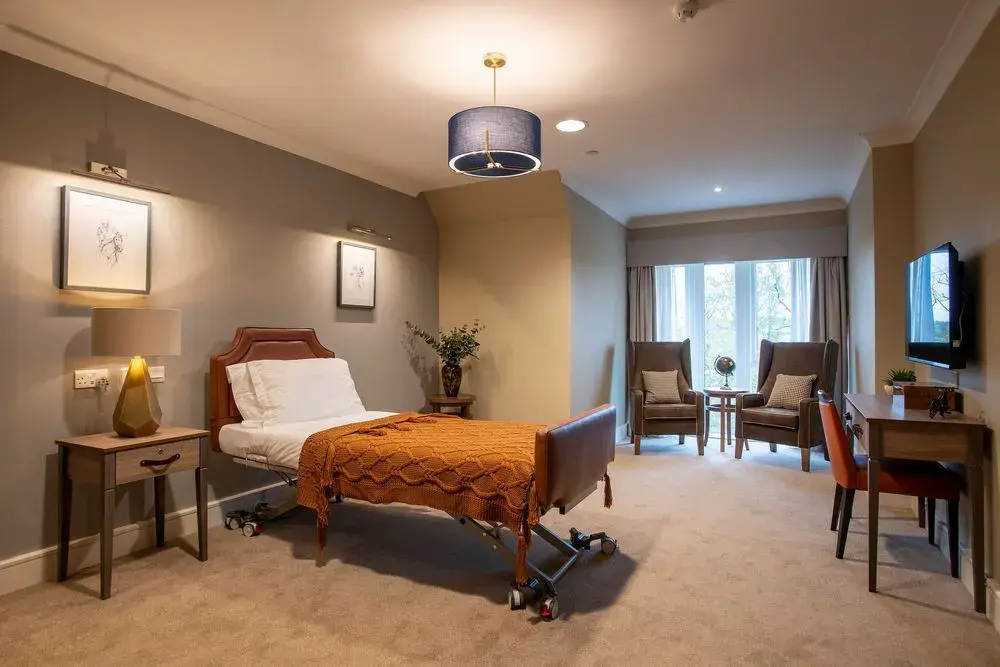
Another option is receiving specialist dementia care at home. Through Lottie, you can find home care providers offering early-stage and late-stage dementia care. Somebody will either visit you on a regular basis and provide whatever support you need, or move in with you full-time and always be on hand to provide care.
If you’re unsure of the best option, a care needs assessment can help you figure this out. This assessment will consider the care you require and in which setting this would be best provided.
A financial assessment will follow this, which will work out whether you have to pay for your own care or if you qualify for local authority funding, depending on the value of your savings (and assets if you require care in a care home).
Loading FAQs...

